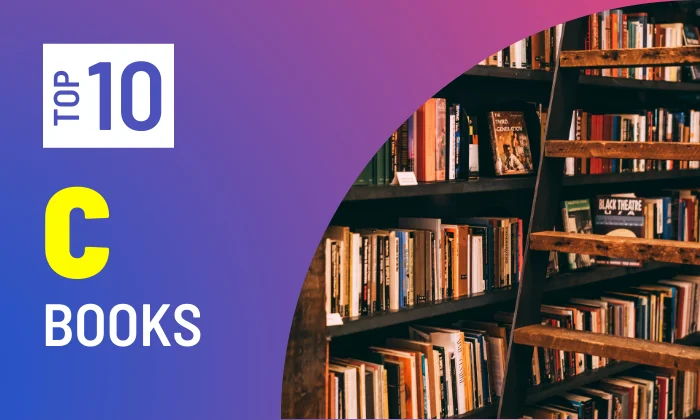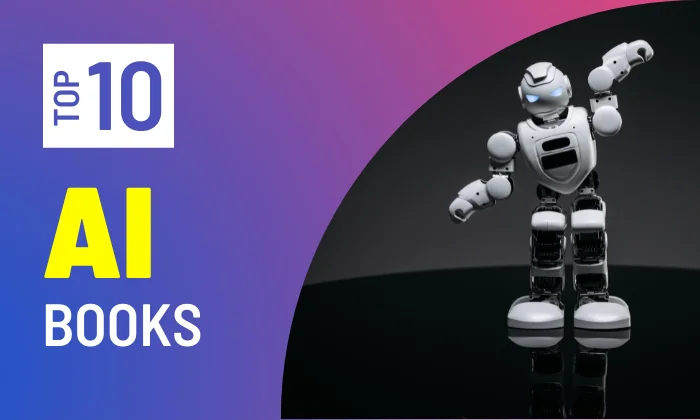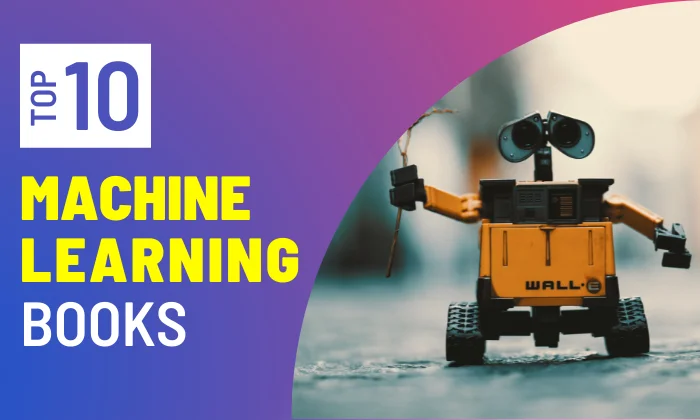These are the top 10 C books that will help you learn and implement C Programming.

1. C Programming Language, 2nd Edition
by Brian W. Kernighan, Dennis M. Ritchie
The authors provide a comprehensive guide on programming in the ANSI standard C language. This revised edition keeps readers up to date with the finalized ANSI C standard while demonstrating how to use C’s extensive range of operators. C programmers have relied on K&R for years to help them create well-structured and efficient programs. This book also covers the intricacies of the C programming language, including ideas such as declarations in programming, scope rules with ANSI modifications, and much more. The programmer will find the 2/E near the end of the book, which has been fully revised with extra examples and problem sets to help the programmer understand how to implement difficult language elements.
2. C Programming: Language: A Step by Step Beginner’s Guide to Learn C Programming in 7 Days
by Darrel L. Graham
This book will teach you all there is to know about the C programming language. This book explains the data types required for this language as well as how to display them. This is a book for programmers, students in other computer courses, and other computer users who want to understand the basics of the most widely used programming language. It’s a fantastic book for not only novice programmers but also for computer users who want to know what’s going on behind the scenes while they use various programs. You’ll also learn how to structure relevant expressions so that the computer produces helpful results rather than error messages following compilation and execution.
3. C Programming Absolute Beginner’s Guide 3rd Edition
by Greg Perry, Dean Miller
This is the best guide for beginners for writing code widely available for learning skills that may be applied to any language. Its simple written text will get you started writing resourceful, trustworthy C code in everything from video games to phone applications. It’s also completely updated for the new C11 benchmark and today’s free, open-source software. There are so many things you’ll learn from this book. This book contains chapters that have concepts of C programming like how you can control programs by only testing its data, either manipulating the data or strings or making them more comprehensive. The programmers will learn how to handle the vast amount of data by using the help of arrays and pointers. There are tools in this book by which the reader will understand the workings of Windows, Oracle, Linux, or OS.
4. C Programming: A Modern Approach, 2nd Edition
by K. N. King
It was written in such a way that it was accessible to a wide variety of readers, from beginners to expert pupils. The first edition was one of the most popular C textbooks in the last 10 years, with adoptions at over 225 colleges. The second edition keeps all of the book’s popular features while also updating it to include a discussion of the C99 standard. The new edition features considerable improvements and updates, as well as a significant number of exercises and longer programming projects. This edition of the book expanded the coverage of GCC with new coverage of abstract data types. You’ve not had a C book like this before: it’s jam-packed with essential material and examples while remaining wonderfully understandable.
5. Programming in C (Developer’s Library) 4th Edition
by Stephen Kochan
This is a fantastic introduction text with many examples and well-written language. This book covers all aspects of the C programming language, including the most recent additions made to the C11 standard. This book will show you how to use the C programming language to create programs. This book will provide you with a comprehensive knowledge of this language, which is the foundation for numerous object-oriented programming languages such as C++, C#, and Java, whether you’re a rookie or an experienced programmer. All of the C functions are explained in detail by Writer. You’ll master the fundamentals of the language as well as proper programming techniques. The book is appropriate for classroom usage or self-instruction because it includes exercises at the end of each chapter.
6. C Programming in One Hour a Day, Sams Teach Yourself 7th Edition
by Bradley Jones, Peter Aitken, Dean Miller
This is the most recent edition of the best-selling C language book in the world. This volume focuses on using free, open-source C compilers to write platform-independent C code. This is the most comprehensive and in-depth C instruction accessible. It’s great for anyone who wants to properly grasp C, including hundreds of developers who want to take advantage of the language’s speed and performance in powerful digital and gaming applications. It provides hands-on training that begins with easy activities and progresses to professional-level approaches. Each session is designed to be finished in about an hour and introduces and clearly explains key ideas.
7. C All-in-One Desk Reference For Dummies
by Dan Gookin
The C programming language and its direct derivatives are widely used and are among the world’s most popular programming languages today. C’s continued popularity is because C programs are fast, compact, and can operate on a wide range of computers. C is a versatile and efficient programming language that may be used for a wide range of activities, including system-level code, text processing, graphics, telecommunications, and many other domains. To guarantee you’re ready to work with the author’s examples, the book contains a convenient appendix that shows you how to set up your computer for programming, how to select and use a text editor, and how to fix up the compiler. The C programming language is made simple and enjoyable to learn with this thorough book.
8. Learn C Programming: A beginner’s guide to learning C programming the easy and disciplined way
by Jeff Szuhay
This C programming book walks you through the fundamentals of programming and shows you how to put them into practice in C. Throughout the book, you’ll build and run programs that employ one or more C principles, such as programed organization via functions, data types, and conditional expressions. You’ll learn how to use loops and iteration, arrays, pointers, and strings, among other things. You’ll learn about code documentation, testing and validation, basic insight, and how to construct whole C programs as you proceed. You’ll have learned basic programming abilities in C that you may apply to other programming languages by the end of the book, as well as a solid basis on which to build your career as a programmer.
9. Effective C: An Introduction to Professional C Programming
by Robert C. Seacord
The author discusses best practices, common faults, and open discussions in the C community as he introduces the C programming language and its related programming library. This book, co-written by members of the C Standards Committee, will show you how to debug, test, and analyze C programs. You will benefit from the author’s simple explanations of C language features and behaviors, as well as his forty years of coding experience. The author attempts to bring C into the present era by discussing the existing C17 Standard and anticipated C2x features. You’ll be building professional, portable, and secure C programs to power resilient systems and solve real-world issues in no time with the help of this instant classic.
10. Expert C Programming: Deep C Secrets 1st Edition
by Peter van der Linden
This book is for the experienced C programmer; it is the second in a series that provides advanced tips and techniques to C programmers. This book will assist the C programmer in reaching new professional heights. The reader will be able to quickly browse to areas that are relevant to their current needs. It may use an update, particularly the comparison with C++ and the inclusion of lint in all compilers. It covered a lot of interesting topics and explained them clearly. I would strongly suggest it to anyone interested in learning more about C or the history of programming.
Stay tuned to AiHints for more insightful tutorials on web development, programming, and artificial intelligence. Happy coding!


